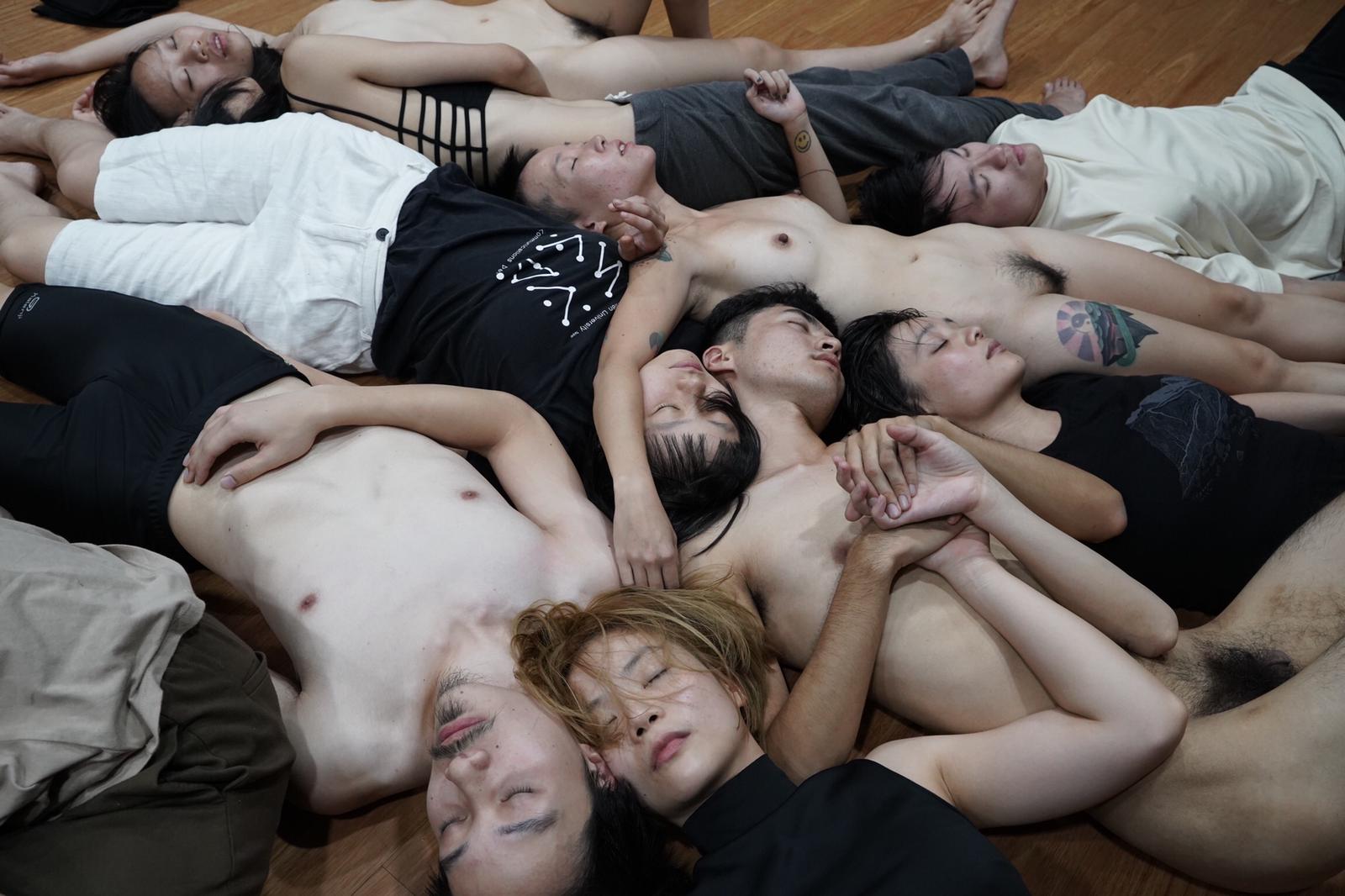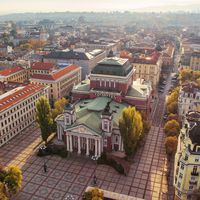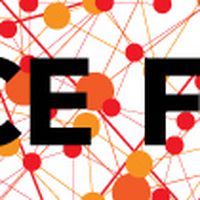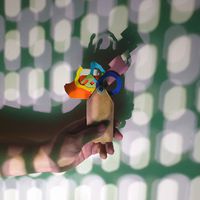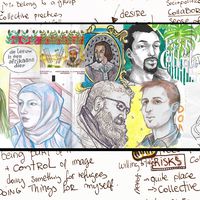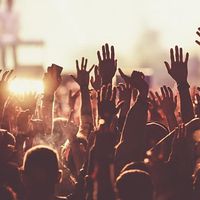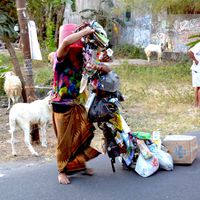Reimagining Residencies Post-Pandemic
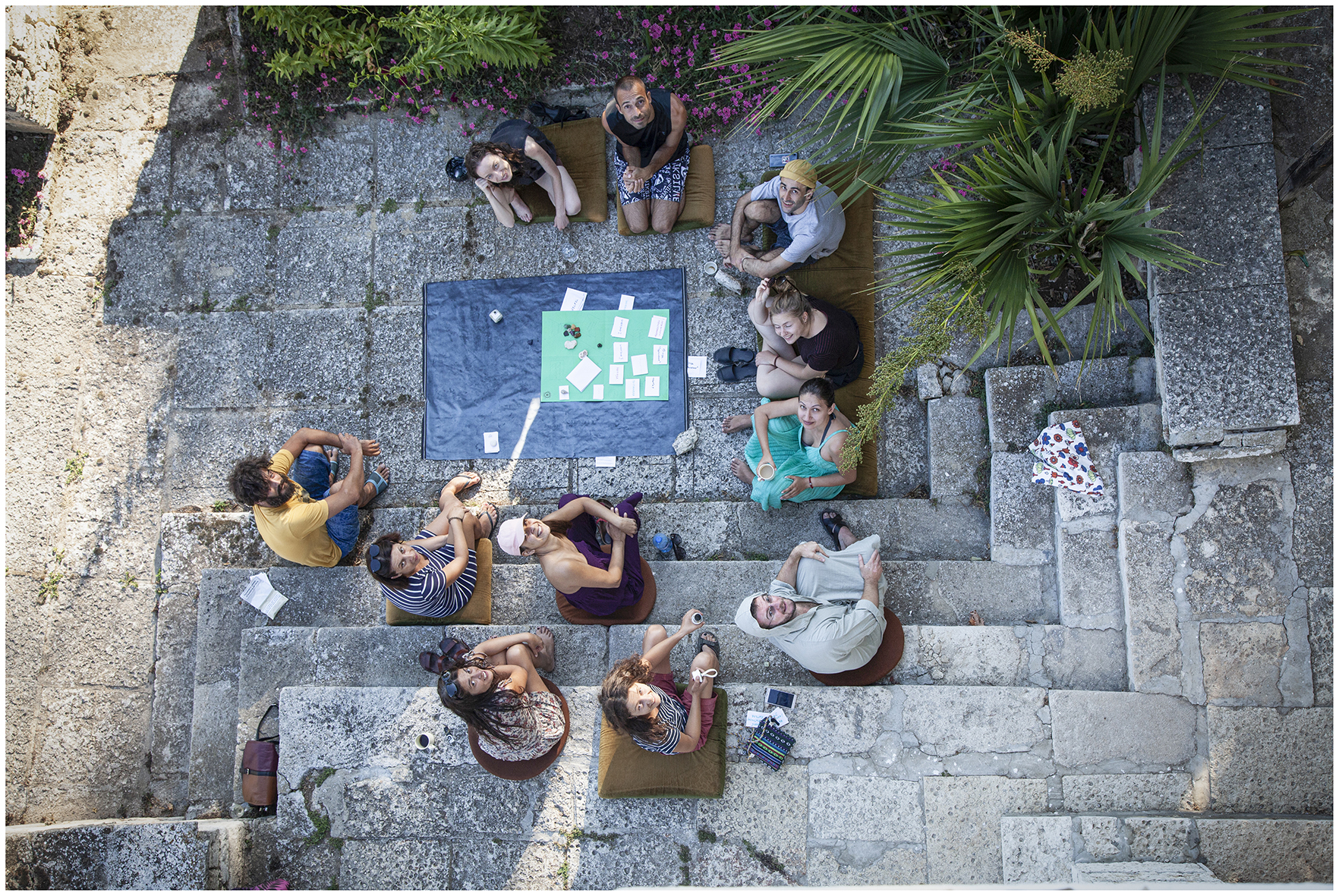
In this article, Yasen Vasilev rethinks how the artists residencies ecosystem could be in the future, following the impact of the Covid-19 pandemic. Last December, culture360 launched a series of articles on how the arts are adapting to the "New Normal". Well over 10 months into the global pandemic, this series will present experiences and stories of resilience, adaptation, and success from the arts sector to the Covid-19 pandemic, with particular focus on differently disabled artists and arts organisations, artists residencies and arts funding.
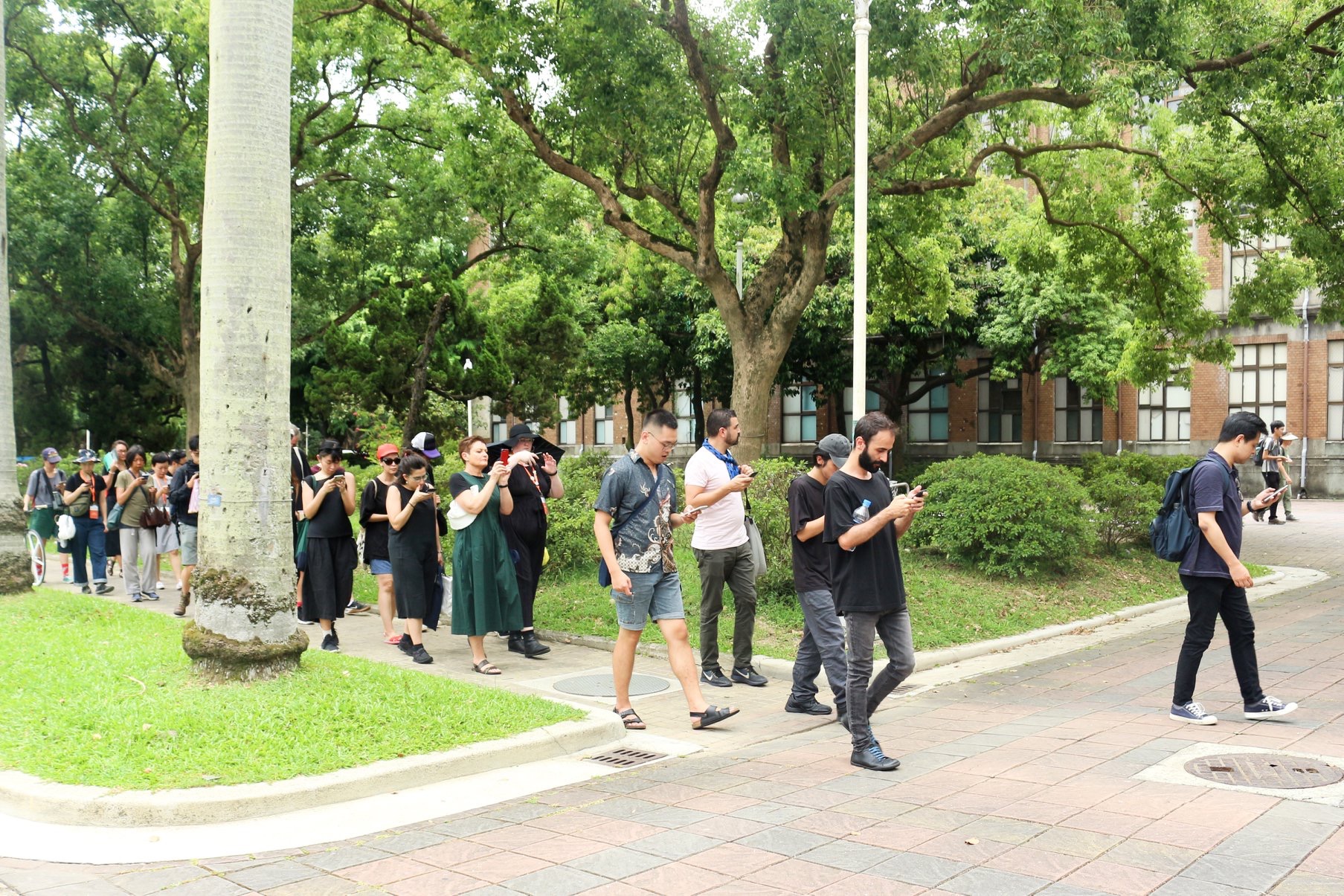
Rehearsal for the present Taipei - a public presentation of the results of our research with HK artist Ip Wai Lung in the frame of ADAM Artist Lab during Taipei Arts Festival 2019, Taiwan. Photo: TPAC Taipei Performing Arts Center
The current halt is a good moment to reconsider and reimagine the residencies ecosystem of the future.
The covid19 crisis seems to have put on hold a(n) (un)sustainable system of circulation of artists like commodities – which often can lead to physical and emotional distress, a sense of lack of belonging, burnout, and exhaustion in fast-paced international production cycles. This varies and differs across disciplines and individual careers, but a major trend is clear – globalization has affected the art world as it has every other aspect of our lives. The current halt is a good moment to reconsider and reimagine the residencies ecosystem of the future. The system of circulation will be ready to resume once a vaccine secures international travel. However, we need to be cautious not to find ourselves in a world with even more precarious working conditions.
BOYCOTT PAID RESIDENCIES
A lot of residencies already operated like businesses before the crisis – exporting the costs of their maintenance and administration to the artists themselves – and this can easily become the new normal once the post-Covid-19 economic crisis sets in. In that way, these spaces operate more like a part of the tourist industry, as hotels or airbnb’s, which require motivation letters and selection procedures to accept your payment. They not only look bad on biographies but are bad for the ecosystem. As such, both artists and policy makers should sanction and boycott such places which limit inclusive participation and de-professionalize artistic work. On their part, art administrators should take the responsibility for securing the funding, lobbying local governments about the importance of incoming residencies and making sure their selection is made based on merit and not on someone's bank account or passport. Fully-funded residencies, On the move and Speakart have addressed the issue by publishing only paid opportunities for artistic work.
DON'T RETREAT INTO ART NATIONALISM
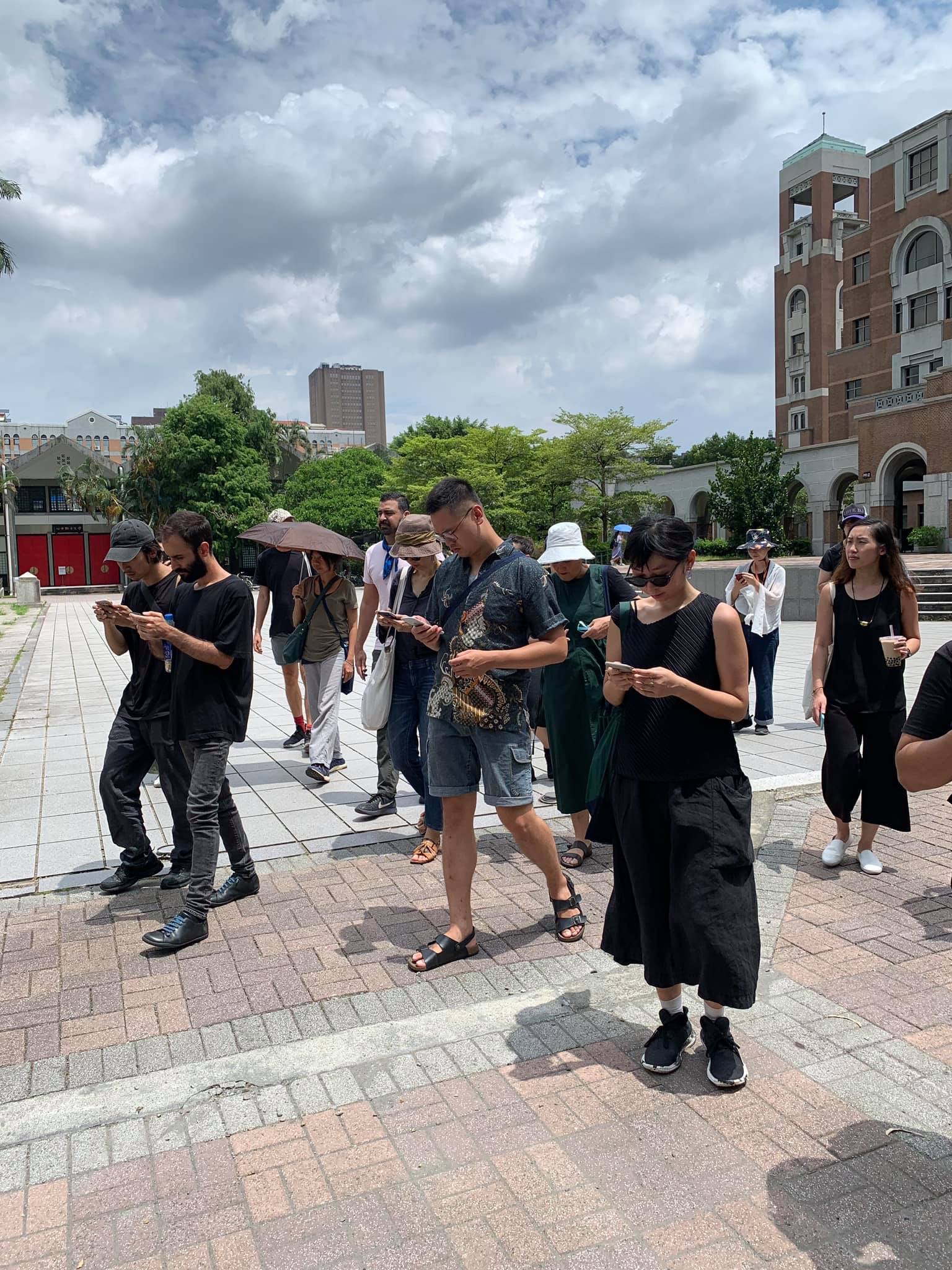
Rehearsal for the Present - a public presentation of the results of our research with HK artist Ip Wai Lung in the frame of ADAM Artist Lab during Taipei Arts Festival 2019, Taiwan. Photo: TPAC Taipei Performing Arts Center
Rejecting radically international travel as Jérôme Bel seems to be proposing is not an option for artists coming from less privileged backgrounds and countries. Bel is simultaneously telling us that we should work locally and avoid travel while using his status to cement an online international career without even needing to travel places. Maybe sharing resources in a more equitable way would eventually make possible for people to have careers at home, but until then they will continue to go to Paris, London or New York. Bulgarian artist Lachezar Boyadzhiev makes a statement on that, reflecting on his own status as a commodity in his work GastARTbaiter (a wordplay on Gastarbeiter – a migrant worker with temporary work permit) – by collecting years’ worth of contracts, plane tickets, invoices, receipts, per diems, paid to him to attend international residencies, calculating the costs and asking how this sum of money might have affected the local scene and his life if it had been paid as a salary to work in his own home.
BALANCE BETWEEN GLOBAL AND LOCAL
Some institutions have replaced their obsession with internationalization with a renewed interest in local art and for the first time opened their doors to artists living in their regions. For various reasons some artists were unable to travel internationally even before the global pandemic and they still needed sustainable local professional opportunities, access to studio spaces and a platform to develop and show work, which residencies rarely offered. Now with both residencies unable to host incoming artists and local artists stuck at home, this seems like the perfect match, at least for a while. Before the crisis, short-term incoming residencies didn't allow deeper investment in the local context – even when both parties are interested to continue working together, they rarely have funding options to do so. Ideally, residencies will learn from the experience and aim for long-term connections, slow-paced production, allowing collaborations and partnerships to emerge and develop and securing stable employment for a mix of local and international artists. This will positively affect not only the professionals but also the audiences and local communities.
SHARE INSTEAD OF EXTRACTING RESOURCES
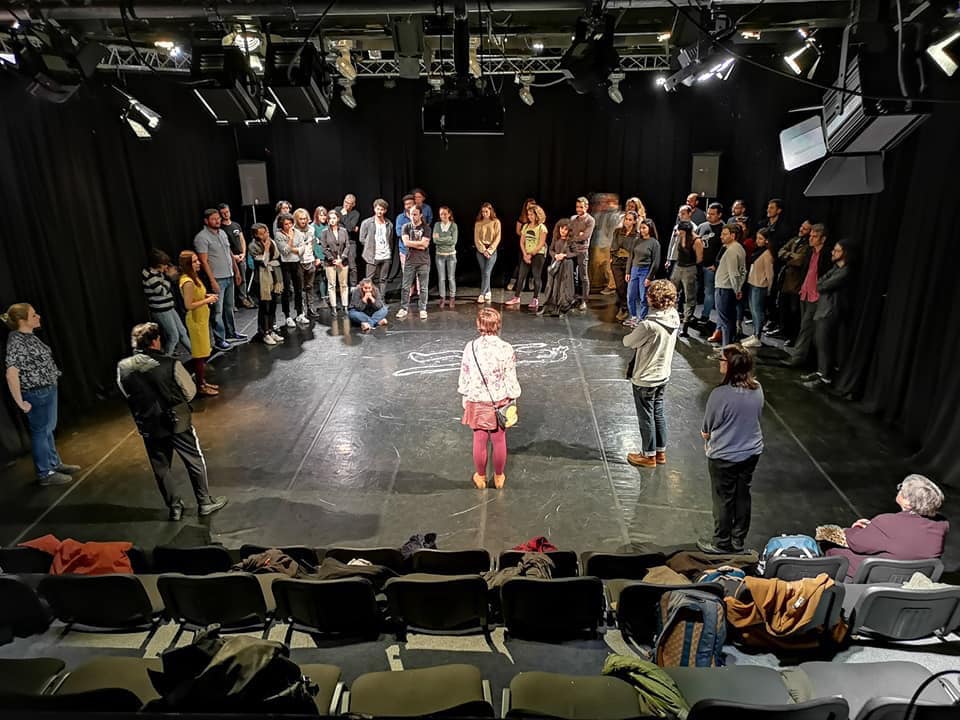
Hour of Truth - a performance by Radar Sofia with Venice Biennale winner Vaiva Grainyte
and local writers, 2019. Photo: Photo-Corps
Some art institutions reacted to the crisis by moving their activities online while keeping the pace of the production – the capitalization of the immaterial space of the internet has been happening hand-in-hand with globalization and we suddenly find ourselves in an oversaturated online reality which devalues artistic facts. We all know how social media have been exploiting us and our data, making us work for free and we don't need artist residencies to start doing the same. The online efforts of some big foundations who stepped up to support or replace governments in providing emergency funding (KONE, Onassis) deserve praise – they distribute grants with almost no strings attached instead of focusing on extracting content for online platforms.
GIVE AIR TO ARTISTS
Residencies often come with regulation on themes, methods and type of work and thus shape artistic production. Before expecting of them masterpieces, market success, cutting-edge research, and critical acclaim, institutions should talk to artists on what type of support they really need and invent tailor-made residencies around their needs instead of asking them to fit guidelines and priorities. Can they create long-term engagements, with contracts, salaries, benefits and support that could make a considerable change on one's career instead of offering precarious one-two months of (un)paid freelance work in another location thousand kilometers away?
Impossible actions - workshop and performance with 11 local Taiwanese artists at
Taipei Artist Village, 2019. Photo: Taipei Artist Village
Artists in residence programmes are often abbreviated as “air” – and I imagine a world where the feeling an artist gets from participating in one is as light and natural as breathing – without the constant competition, the pressure of production, the stress of success and the obligation to prove you're worth it – just an open air space to imagine new ways of being and allowing things to come to you fully formed.
Yasen Vasilev writes both as a former artist in residence in more than 10 institutions in Europe and Asia and as a residency coordinator at Radar Sofia. Educated at the theatre academies of Sofia and Shanghai, he's a dramaturge and author of poetry, plays and performances. He's a regular contributor for Springback magazine and co-curates the Small Season festival at Sfumato theatre.
Further readings:
- https://www.ednetwork.eu/activities/art-practice-in-times-of-uncertainty
- https://www.kunsten.be/en/now-in-the-arts/residencies-and-future-cosmopolitics/
- https://issuu.com/kunstenpuntflandersartsinstitute/docs/kp2_en_web
Photo credits:
- Radar Balchik - a short residency/team building for local Bulgarian artists, organised by Drama Pact and Radar Sofia in Balchik, 2020. Photo: Ivan Donchev
- Rehearsal for the Present - a public presentation of the results of our research with HK artist Ip Wai Lung in the frame of ADAM Artist Lab during Taipei Arts Festival 2019, Taiwan. Photo: TPAC Taipei Performing Arts Center
- Hour of Truth - a performance by Radar Sofia with Venice Biennale winner Vaiva Grainyte and local writers, 2019. Photo: Photo-Corps
- Impossible actions - workshop and performance with 11 local Taiwanese artists at Taipei Artist Village, 2019. Photo: Taipei Artist Village
Similar content
08 Dec 2022
from - to
16 Oct 2014 - 19 Oct 2014
04 Jan 2021
from - to
28 Jul 2020 - 28 Jul 2020

